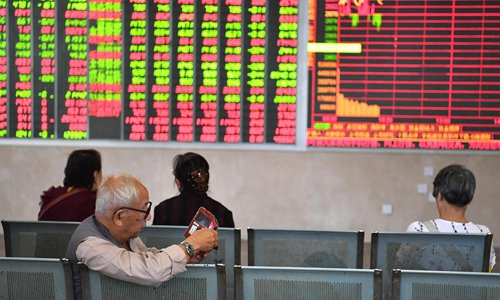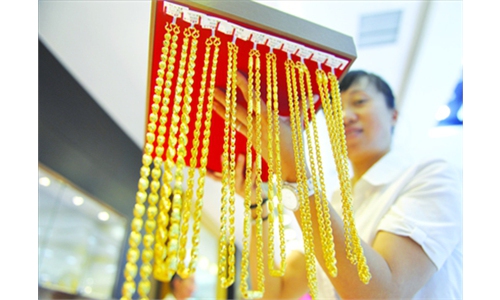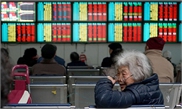SOURCE / MARKETS
China’s stock market rises 2.34% Monday as funds pour in

Investors monitor stocks at a trading center in Chengdu, Southwest China's Sichuan Province. Photo: VCG
Chinese stock market index jumped above a key resistance level Monday as the market priced in a forthcoming move to align A-shares with their global counterparts, part of a broad effort to boost the allure of the mainland equity market.
The benchmark Shanghai Composite Index edged up 2.34 percent to close at 3,438.8 points to start the week on a high note. The Shanghai index was close to its year-to-date intraday high of 3,458.79 points recorded on July 13, prompting more investors to jump in for a bull run.
Trading volumes in Shanghai and Shenzhen bourses topped 1 trillion yuan ($144.2 billion), after missing the mark back to back on the previous two trading days.
Monday's solid gains, led by insurance, bank and brokerage shares, were the biggest of the month, offering a clearer picture for investors snatching their heads about where the market was heading.
The A-share market has been largely unpredictable since the beginning of August, with many of the big-cap blue-chips, especially in the sphere of pharmaceuticals and vaccines, turning into the main profit-making arena for investors, which in turn subjects the entire market to violent swings.
Monday's rally is expected to help dispel market concerns over increased volatility in the mainland market after the first batch of registration-based IPOs are set to debut in the ChiNext market in Shenzhen, putting A-shares one step closer to being on a par with their international peers.
The Shenzhen Stock Exchange announced late Friday that the initial batch of registration-based IPOs will trade on August 24, meaning all stocks on the ChiNext board will be allowed to rise and fall by 20 percent in a single trading day, as opposed to the existing daily trading limit of 10 percent.
Stocks on the technology-studded STAR market in Shanghai have adopted the 20 percent trading limit for more than a year.
Additionally, Xiao Gang, former chief of China's securities regulator, remarked over the weekend that securities settlements on a T+0, or same day buy-and-sell, could first be tried out among blue-chips in the A-share market.
Moves of T+0 trading are likely to be seen as a boon for overseas investors keen to capitalize on the stock market in the world's second-largest economy, and one widely believed to be the only major economy to positive economic growth in 2020 due to the coronavirus pandemic.
Also, net inflows into the mainland market via the northbound trading linkups between Hong Kong and the mainland bourses hit nearly 8 billion yuan Monday.
Global Times



